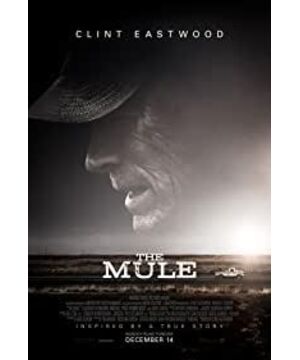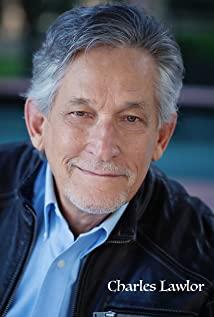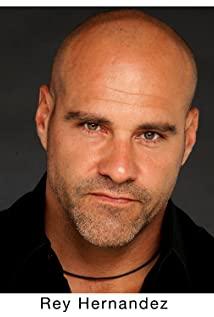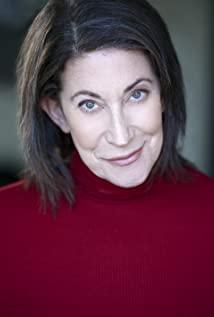If you don’t understand the scumbag, you can’t shoot "Mule" well.
Text | Mei Xuefeng
About the author: male. Senior media person, digital product enthusiast, long-distance running and Tai Chi enthusiast. Former editor-in-chief of "Watching Movies·Midnight Show".
01
Warmth is obviously good, but the problem with "Mule" is that it's too warm.
Tenderness is a kind of kindness to the world, and too warmth will inevitably soften the contradiction or even cover up the contradiction. For "Mule", it uses this kind of warmth to cover up two things. One is why the protagonist suddenly has a strong interest in the family and wants to return to his own family, and the second is why his family so easily Accepted him?
If these two points are not stated clearly, the core problem of the whole story will not be solved. In this movie, we can only watch him fail in his flower planting career. Without a place to live, he thinks of his family. Otherwise, when his ex-wife questioned him if it was because he did not have a place to live, he would not be incapable of rebutting.
Yes, "Mule" essentially tells the story of a scumbag, if we regard this word as a neutral word. If you want to talk about a scumbag, you have to make it clear what kind of species it is.
02
The charm of scumbags lies in their strong vitality. Their life energy and explosive power make their life journey full of various parabolas and steep curves.
For women, the charm of scumbags lies in the freedom of imagination brought about by animal out-of-control, which can greatly stimulate hormones. Women fall in love with scumbags because of scumbags. The reason why they scold them afterwards because they are unwilling to bear the consequences after enjoying this happiness.
The consequence is that passion cannot last. Passion is never specific. It is a kind of swelling. It is non-directional. It can coerce you, but it cannot take you to the next place you expect. They are like a roller coaster, like drugs. You absolutely love them, and you hate them just because you can't get rid of them.
In Wong Kar-wai's movies, for example, Leslie Cheung's role is roughly like this. They are responsible for the opening but never the closing. They are responsible for the feast, but they never care about the firewood, rice, oil and salt. They will only be legends on the rivers and lakes, they will only be footless birds.
The problem with this movie is that it portrays a scumbag too normal. For a scumbag, the temptation of the release of life itself is far greater than the sense of security brought about by the stable structure of the family, because this is a person who is not insecure at all. The only thing they lack is Free up space.
When they are old, the family suddenly becomes important. Of course you can understand it as a discovery of conscience, but it is more likely that after the energy of life is burned, he himself becomes a pile of slightly hot embers of the flesh. When all desires fell apart, and even one's own body was crumbling, the family and the warmth represented by the family suddenly took on a unique meaning. But this process is not warm at all, but rather desolate. And this kind of return is not romantic at all, it is more of an animal return, a selfish pursuit of advantages and avoiding disadvantages.
The real tragedy is that they cannot defy their instincts. Their sensuality and passion drive them forward, but their morality makes them toss and turn in the dark.
Yu Hua's father in "Screaming in the Drizzle" seemed careless and unconscious at the widow's house during the day, but when night fell, he would unconsciously run to the grave of his dead wife and cry. Shame is a too secret emotion, it can only be released in the dark.
"Wrestling King" is another bleak symbol. You can deeply see the cracks between those physiological desires and his morals, and you can see the protagonist longing for a healthy life, but can't stop the deep tragedy of degeneration.
Also in this play, we don't see the tragic, the sense of desolation, or even the sense of shame. Clint Eastwood’s sunlight is too decent, his eyes have vicissitudes, but there is no shame. Some people are good at using sunlight, and even use domineering to cover up his shame, but Linkt Eastwood There is no kind of domineering and that kind of sternness.
03
Another point of "Mule" is that it is too beautifying the family. And this point is described in a more profound manner in another movie "Million Dollar Baby" by Clint Eastwood. The nature of the family is also the economy. How much financial ability you have, how much power you have in this family, when you do not have the financial ability, your power here will be silently recovered.
This is the reason why the female boxer must win the championship, because she has to prove that she is useful and that she can give back to her family. Only in this way can she get the dignity she expects, and what's worse, Even this most basic dignity is actually hard for her to get.
Family tragedies are often due to the unequal distribution of power. It is an eternal confrontation between emotion and utilitarianism. But there is often no balance in this world. When he can make money, he cannot give you emotional comfort. When he can give you comfort, he often has no financial ability. This is one of the most profound contradictions in family conflicts, so it also appears repeatedly in various dog-blood dramas.
I can't see a slightly normal family in "Mule". We can't see the split between their emotions and money needs, and we can't see how the anger is so deeply imprinted in our hearts that it can't be eliminated.
This is a fairy tale family: He returns with money and emotions, and then the family will forget the past and accept it entirely.
04
Warmth is actually based on coldness, just as comedy is based on tragedy. It does not describe the confrontation between human beings’ sociality and animality, does not describe the family’s pull between emotions and the economy, does not describe the embarrassment of people in various situations, and does not describe people’s inability under any circumstances. The loneliness of dismissal, then this movie can only be a sugar-coated cannonball, it can only pass by the truth superficially.
Man is an animal that can grow long and look at Shu, and an animal that cares for one and loses the other. Humans are animals that heal their scars and forget their pain, and they are also animals that are easy to remember bitterness and sweetness. People are animals who hope to be irresponsible, and they are also animals whose responsibility gives them the greatest sense of security. The human heart is in the middle of the wolf rushing around, not knowing why.
And this "Mule" is obviously far away from the complicated situations of life.
Edit | Langlang
Typography | Turner
Please contact WeChat for work matters: paperbullet
© All rights reserved. Reprinting without permission is prohibited
View more about The Mule reviews











